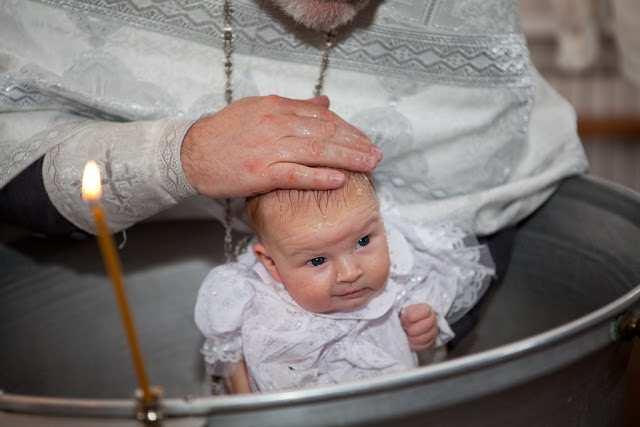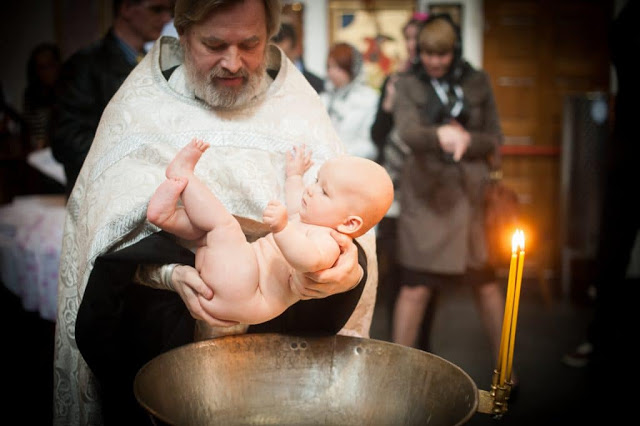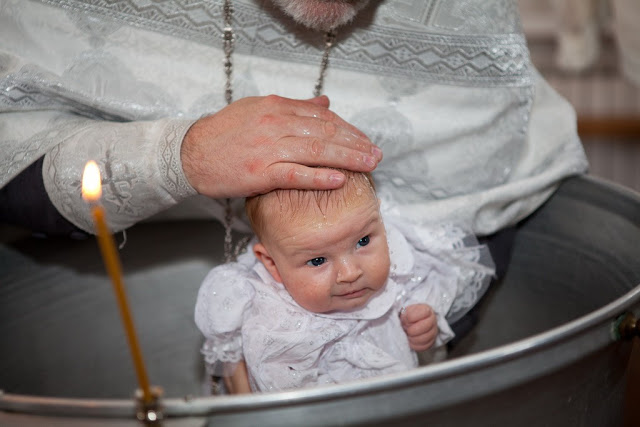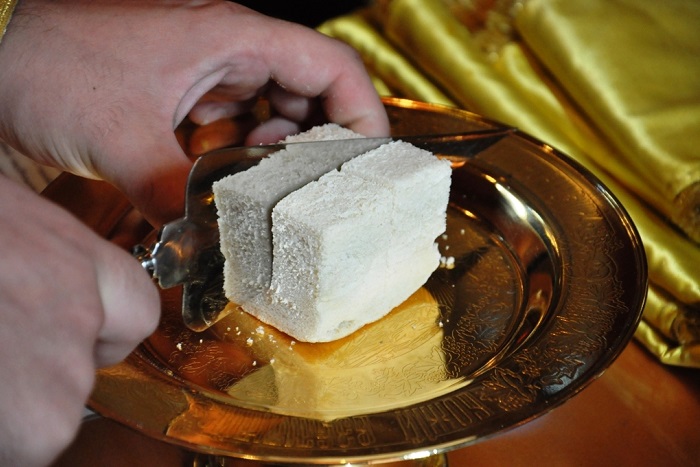
St. Augustine made the observation that in the Scriptures, circumcision was a sign of the covenant between God and His people. The community did not wait until a man had proven his faithfulness to God before circumcising him. Baby boys were circumcised and then the community had the responsibility to help them grown into faithful men. For Augustine, baptism works in a similar way as part of the new covenant – a sign of God’s faithfulness which each person receives and then works on converting their heart to God. St. Augustine writes:
“In the case of Isaac, circumcision was performed as a sign of the righteousness of faith on the eighth day after his birth; he then followed the example of his father’s faith. Thus, the sign of righteousness had come first in the infant, and the righteousness itself followed in the growing man. In a similar way, the sacrament of regeneration comes first in baptized infants and, if they later commit themselves to Christian fidelity, then the conversion of heart follows, for which there was an earlier sign in their bodies.” (Romans: Interpreted by Early Christian Commentators by J. Patout Burns Jr., Kindle Loc. 2014-17)

Though baptism has a spiritual antecedent in circumcision, it is still something totally new.
In the Old Testament, physical birth determined whether someone belonged to the chosen people. Only the children of Abraham were heirs to God’s promises. Despite the fact that proselytism was especially strong by the time of Christ’s coming – “You traverse sea and land to make a single proselyte, you make him twice as much a child of hell as yourselves” (Matthew 23.15) – the neophytes themselves were not regarded in all respects as true members of Israel, but only their descendants. In the New Testament however, it is spiritual birth that determines if someone belongs to the Church: “Truly, truly, I say to you, unless one is born of water and Spirit, he cannot enter the kingdom of God” (John 3.5). Beginning with the first apostolic preaching on the day of Pentecost, the sacrament of baptism by water and the Spirit is the one and only way of entering the Church, without which salvation is impossible. (Nicholas Afanasiev, The Church of the Holy Spirit, p. 23)
If the only purpose of baptism was the washing away of sin, then there would be no reason to baptize infants. But baptism is not God’s reaction to sin, but rather God’s own effort to unite each of us to Himself, so that we might share in the divine life. Baptism gives a new birth, a new life to each person – a spiritual life in communion with God in Christ. A baby is fully human and thus capable of being united to God and to share in the divine life. [for further thoughts about the baptism of infants see my post Baptism or Blindness] Baptism is a sign and a sacrament so is rich in meaning. As biblical scholar Geza Vermes writes:

“For Paul, the baptismal pool had a deep allegorical meaning. It symbolized the tomb in which the crucified body of Jesus was laid to rest and where it remained until the resurrection on the third day. Baptism for Paul is a myth-drama. Being dipped into and lifted from the baptismal pool meant an allegorical identification with the death, burial and resurrection of Jesus. Through the baptismal ritual, the effects of the cult drama were transferred onto the new Christian. Baptism seen through believing eyes was a sacramental rebirth.
Do you not know that all of us who have been baptized into Christ Jesus were baptized into his death? Therefore we have been buried with him by baptism into death, so that, just as Christ was raised from the dead by the glory of the Father, so we too might walk in newness of life. (Rom. 6:3–4)” (Christian Beginnings, Kindle Loc. 1708-14)




